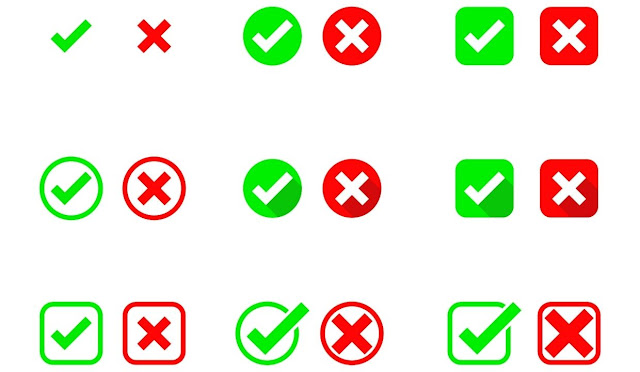Research for the reputation of the company in Vietnam: Risk Management
Risk management is a vital element when doing business but so far, not many enterprises concern about it.
Researching a company’s reputation in Vietnam is an essential component of risk management for several reasons. In an increasingly interconnected and competitive global business landscape, understanding a company’s reputation can provide valuable insights into potential risks and help organizations make informed decisions.
Why researching a company’s reputation in Vietnam is a crucial aspect of risk management?
Risk Identification and Assessment:
A company’s reputation reflects its standing in the market and among stakeholders. Conducting research on a company’s reputation can help identify risks related to ethical concerns, legal issues, financial stability, and other factors that could impact its operations. By understanding these risks, organizations can assess their potential impact on business objectives and formulate appropriate risk mitigation strategies.
Operational Risks:
A poor reputation can lead to operational disruptions. For example, negative publicity or consumer backlash due to a company’s unethical practices or subpar products can result in decreased sales, loss of customers, and regulatory scrutiny. Evaluating a company’s reputation in Vietnam can help predict and manage such operational risks.
Financial Risks:
Reputation plays a significant role in a company’s financial health. Negative news or controversies can lead to declining stock prices, reduced market capitalization, and credit rating downgrades. By researching a company’s reputation in Vietnam, investors and stakeholders can gain insights into its financial stability and potential risks to their investments.
Legal and Regulatory Risks:
A company with a tarnished reputation may be subject to increased legal and regulatory scrutiny. Researching the company’s reputation in Vietnam can help identify potential violations, litigation risks, and compliance issues that could lead to legal consequences and financial penalties.
Supply Chain Risks:
A company’s reputation can impact its relationships with suppliers and partners. If a company is known for unethical practices or poor corporate governance, suppliers and partners might reconsider their associations, affecting the company’s supply chain stability.
Market Perception:
A positive reputation can enhance a company’s brand value and market perception. Conversely, a negative reputation can lead to decreased consumer trust, hampered growth, and reduced market share. Researching a company’s reputation in Vietnam helps gauge how it is perceived by customers, investors, employees, and the public.
Employee Relations:
A strong reputation can attract and retain quality talent. Conversely, a company with a poor reputation may struggle to recruit skilled employees and experience higher turnover rates. Understanding a company’s reputation can offer insights into its workplace culture and employee satisfaction, which are crucial for talent management and organizational success.
Crisis Preparedness:
A company with a well-established reputation management strategy is better prepared to navigate crises. By researching a company’s past actions and responses to adverse events, organizations can learn from previous experiences and develop crisis management plans that protect their reputation and minimize negative impacts.
Strategic Decision-Making:
The reputation of a company can influence strategic decisions, including mergers, acquisitions, partnerships, and market expansions. A company with a strong reputation is more likely to attract potential partners and investors, while a company with a questionable reputation may face challenges in these areas.
Stakeholder Trust:
A positive reputation builds trust with stakeholders, including customers, investors, employees, regulators, and the public. Maintaining trust is crucial for long-term business success, and reputation research helps organizations understand how they are perceived by different stakeholder groups.
Vietnam companies concerning about risks and risk management practice?
Researching the reputation of a company in Vietnam is a critical aspect of risk management. It provides insights into potential risks and helps organizations make proactive decisions to mitigate those risks. A strong reputation enhances a company’s resilience, competitiveness, and long-term sustainability in a complex and interconnected business environment.
According to a recent survey with 522 companies, there are only 43 companies, accounting for about 8%, have the independent risk management department in their business. More noteworthy, the majority of these 43 companies operating in the banking and financial sector, which has nothing new to risk management. In fact, not all banks have independent and effective risk management departments. The negative problems related to the banking system in recent times somewhat showed the picture about the risk management of this sector.
Risk is understood as any events and situations that could harmful to the ability to achieve the business objectives of the enterprise. Risk management is organized in a formal way and is conducted continuously to identify, control and report the risks that may affect the achievement of the business objectives of the enterprise.
So why businesses are not interested in risk management? Part of this problem stems from the awareness of the leaders. In order to build and operate the risk management system in the enterprise, it needs the commitment of the senior leaders. If senior leaders do not aware of this problem, the administration process will be difficult to achieve the desired effectiveness.
Recently, there are many theories and systems of risk management but small and medium enterprises should be cautious when apply because system and theory are just general and they should be adjusted when applying to each business.
In order to form the culture of risk management, the leaders must along with the employees to implement it regularly and for each project. In theory, the risk management process is carried out in 5 steps: identify risk; evaluate its impact; determine the likelihood; action and measures; monitoring and evaluation.
Finding the right business partner in Vietnam is also important. We recommend doing research on the reputation of the company and individual shareholders, corporate or individual, gathering publicly available company information, and performing background checks on key personnel to find potential risks in cooperation. Working with a reliable partner can help achieve economic benefits, saving time and money in business.
.jpg)
.jpg)


Nhận xét
Đăng nhận xét